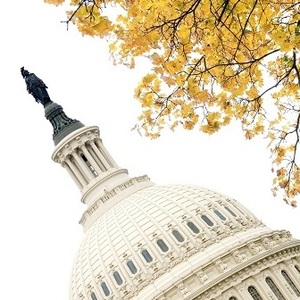Biodiesel tax credit positioning intensifies as expiration nears

September 23, 2016
BY Ron Kotrba
With a contentious presidential election and the end of another legislative year looming, stakeholders are stepping up measures and urging Congress to renew or reform key tax incentives. The U.S. biodiesel industry, through its trade association the National Biodiesel Board, joined a broad coalition of 50-plus industry groups calling for action on tax extenders this year by sending a letter to leaders in the U.S. House of Representatives and Senate. Like many other tax provisions, the $1 per gallon biodiesel and renewable diesel blenders credit is once again set to expire Dec. 31.
“It is incredibly disruptive to have this looming expiration hanging over the industry year after year,” said Anne Steckel, the vice president of federal affairs at the National Biodiesel Board. “If Congress doesn’t act soon, it would mark the fifth time in eight years that Congress has allowed the biodiesel incentive to expire while at the same time tax breaks for oil and gas production are written permanently in the tax code. We could be seeing tremendous growth and hiring in this industry but instead biodiesel producers will be sitting on the sidelines waiting to see what happens. So it’s time for Congress to come together and pass an extenders package before these incentives expire at the end of the year.”
Advertisement
Advertisement
In mid-September, Rep. Diane Black, R-Tennessee, introduced legislation to extend the biodiesel and renewable diesel blenders tax credit through 2018. The bill was introduced Sept. 12 and to date has no other cosponsors.
“After having the benefit of this week’s meetings, it is clear that the best chance for our industry to continue to have tax credit support at the federal level is for all of us to unite behind the existing blenders credit,” said Advanced Biofuels Association President Michael McAdams. “Given the shortness of the year and the importance of certainty for the overall biodiesel industry, we simply owe it to all our members to give them the best opportunity to continue to have a tax credit in 2017 and 2018.”
While organizations such as the Advanced Biofuels Association are strongly in favor of Black’s bill to extend the blenders tax credit as is, the domestic biodiesel industry and its trade association the National Biodiesel Board adamantly argue reform is needed to stop the influx of taxpayer-subsidized imports, which totaled 670 million gallons last year, and whose volumes could be even greater this year.
Advertisement
Advertisement
In May, legislation was introduced by Reps. Kristi Noem, R-South Dakota, and Bill Pascrell, D-New Jersey, to extend the biodiesel tax incentive through 2019 and reform it as a domestic production credit, thereby eliminating imported biodiesel and renewable diesel from being eligible for the $1 per gallon incentive. Two months later, in July, Sens. Chuck Grassley, R-Iowa, and Maria Cantwell, D-Washington, and 12 additional cosponsors, introduced an identical bill in the Senate.
“We certainly appreciate Rep. Black’s support for extending this incentive,” said Ben Evans, the director of public affairs for the National Biodiesel Board, “but the U.S. biodiesel industry is united behind reforming the incentive as proposed earlier this year. The National Biodiesel Board strongly supports S. 3188 introduced by Sens. Grassley and Cantwell and H.R. 5240 introduced by Reps. Noem and Pascrell.”
Related Stories
Neste Corp. on July 24 released second quarter results, reporting record quarterly renewable product sales volumes despite weaker margins. SAF sales were up nearly 80% when compared to the first quarter of 2025.
Valero Energy Corp. on July 24 released second quarter results, reporting a profitable three-month period for its ethanol segment. The renewable diesel segment posted a loss, but the company’s new sustainable aviation fuel (SAF) unit operated well.
The IRS on July 21 published a notice announcing the 2025 calendar-year inflation adjustment factor for the Section 45Z clen fuel production credit. The resulting adjustment boosts maximum the value of the credit by approximately 6%.
The U.S. Senate on July 23 voted 48 to 47 to confirm the appointment of Aaron Szabo to serve as assistant administrator of the U.S. EPA’s Office of Air and Radiation. Biofuel groups are congratulating him on his appointment.
U.S. Secretary of Agriculture Brooke L. Rollins today announced the reorganization of the USDA, refocusing its core operations to better align with its founding mission of supporting American farming, ranching, and forestry.
Upcoming Events










